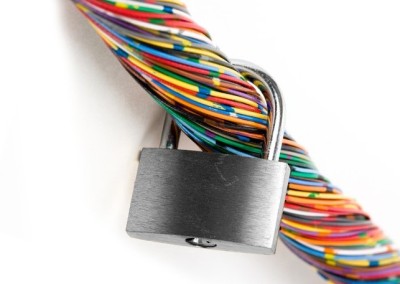Identity theft and hacks are at an all-time high. Managed Service Provider CEO urges individuals to take measures against online hackers.
FAIRFIELD, NEW JERSEY, UNITED STATES, May 22, 2017 /EINPresswire.com/ — Fairfield, New Jersey — 2016 had 2 million more fraud victims than 2015, an increase of 16 percent. Noting this increase in identity theft into 2017, New Jersey managed service provider Quikteks is helping local businesses and their employees alike to stop it at the source.
Quikteks owner and CEO Andrew Rich offers the following 7 tips:
1. Enable two-factor authentication on online shopping sites. Sites like Amazon and eBay are valuable targets for fraudsters, making it important to lock your personal accounts with the tightest security possible. Currently, that’s two factor authentication. If an online shopping site doesn’t offer two factor authentication, use a strong password, and change it often.
2. Become better at password generation and management. Still using your dog’s name and the current year as a password across all of your accounts? It’s time to get smarter about your passwords. Your passwords need to be unique and strong. They also need to be frequently updated to ensure that should they become compromised via a security breach or malware, they will have been changed before the fraudsters attempt to log in. Use a password manager to store them rather than writing them down.
3. Protect your social media accounts from prying eyes. Is your Facebook profile public? Fraudsters can easily glean information, such as your birthdate, which can further their cause of stealing your identity.
4. Keep an eye on your bank statements throughout the month. Don’t wait for your paper statement to arrive at the end of the month because by then, fraudsters could have wreaked havoc on your account. Instead, sign up for alerts and peruse your bank activity online regularly for signs of unauthorized transactions.
5. Beware of account takeovers and new accounts. The move to EMV chips makes it harder for fraudsters to “clone” your credit card. While that’s a good thing, it has pushed them to new avenues like account takeovers and opening new accounts in your name. To help combat this, check your credit report summary frequently, using a trusted source, for signs such as new accounts you didn’t authorize or a sudden drop in your credit score.
6. Freeze your credit report with all three credit bureaus. Adding a freeze to your credit history ensures that only certain government agencies and your existing creditors have access to it. You can lift the freeze through the individual credit bureaus when you need to allow a new creditor access.
7. Get help immediately should you suspect fraud. Limit the damage, and your potential liability for the losses, by notifying the appropriate institutions as soon as you suspect fraud. For example, if you notice a charge to a store you’ve never heard of, it’s likely that your bank account or card has been compromised, so let the bank know immediately that you did not authorize that charge.
While each of these tips can help protect consumers from fraud, Rich suggests scheduling a free computer Internet security assessment from Quikteks to ensure business networks are adequately secured against other threats. Visit Quikteks.com or call (973) 882-4644.

